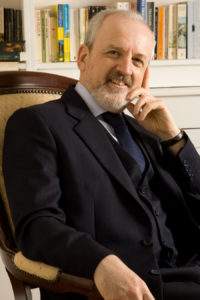 Every year I go out on the road and present lectures to magic societies both in the UK and abroad, and this affords me a relatively rare perspective on the state of magic clubs generally. Are they thriving or in the doldrums? Are they relevant in today’s world, or an anachronism?
Every year I go out on the road and present lectures to magic societies both in the UK and abroad, and this affords me a relatively rare perspective on the state of magic clubs generally. Are they thriving or in the doldrums? Are they relevant in today’s world, or an anachronism?
I’ve talked before about the very few women who seem to attend magic clubs, so I don’t want to go over that subject again here now, but instead I wanted to discuss the age demographic of society membership.
Although there is no one hard and fast fact about the age of members, what I have noticed is that the vast majority of attendees are middle aged or older. On the face of it you could therefore come to the conclusion, perhaps, that magic clubs are no longer seen as relevant to the younger generation, and that it must be that they prefer to interact with their fellow magicians in other ways, such as via YouTube.
While I suspect that this does have some bearing on the demographic, I don’t think this is the whole answer, and in fact it may be not even be the main factor. Here are my thoughts about other reasons why the younger element are not present.
The first thing is that when you are in your 20s, 30s and possibly even 40s, your life can be very full of things outside magic. In your 20s you might be busy with further education studies (degrees etc), and you will often be putting a lot of effort into getting and keeping a job. Sometimes it’s not easy to find work, and as young people seem to change jobs more often than they did in years gone by, there’s a constant pressure on them to keep in employment and to work long hours. Taking time out to attend regular club meetings might not therefore be a priority.
Then in the late 20s and 30s, relationships often become very important and a lot of people are having children and setting up homes. If you are holding down a job at the same time, this means that leisure time is even more restricted.
When you get into your 40s, if you have been successful at work, your job demands may be at their most extreme, plus your family commitments may be at their highest. Again, this makes it difficult to get away in the evenings for magic.
If you then throw into the mix the fact that younger people often play sport or do some form of fitness training, this takes up their free time. And then, of course, they may have active social lives where they need space to see friends too, putting an additional squeeze on magic time.
So unless magic is a real passion, or life generally is simpler, most young people are stretched already to the limits. It’s not until they become middle aged, when the kids start to leave home, and they can manage their job more sensibly, that some time slots start to open up. And the older you get, the more family and work constraints are loosened and the opportunities to enjoy magic club evenings increase.
There are so many choices that people can make for their leisure pursuits that magic is now just one of multiple potential distractions, and so if time is of the essence, magic has plenty of competition.
